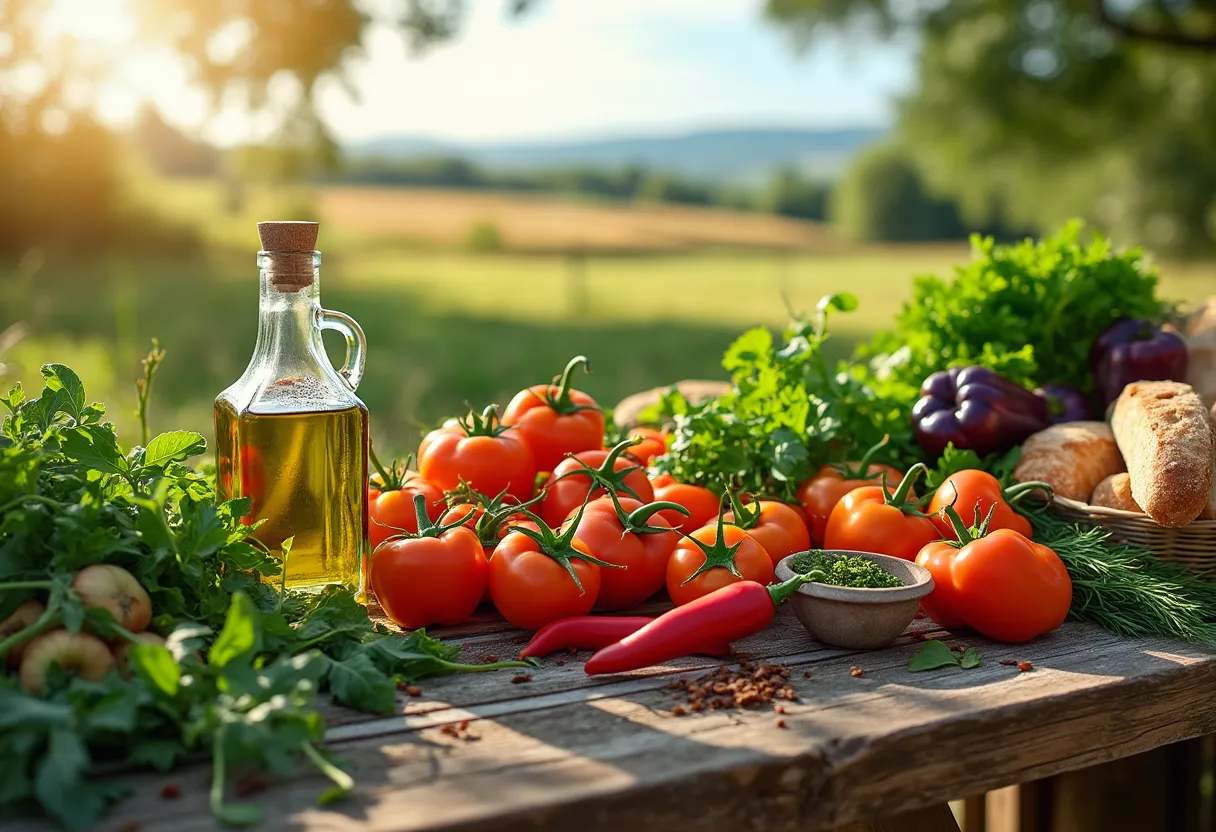
Cultivating Flavor: The Essential Guide to Farm-to-Table Cooking
Published on 9/24/2024
Matthew Reynolds • 9/24/2024
Introduction to Farm-to-Table Cooking
Growing up on a family farm in Iowa, I learned early on about the power of fresh, locally sourced ingredients. The vibrant colors, the crisp textures, and the rich flavors were incomparable to anything you'd find on supermarket shelves. These formative experiences sparked my passion for farm-to-table cooking, a philosophy that celebrates the seasons and the bounty they offer.
The Philosophy Behind Farm-to-Table
At its core, farm-to-table cooking is about forming connections—between the land, the cook, and the diner. It prioritizes sustainability and ethical sourcing, allowing for a greater appreciation for the natural cycles of food production. By choosing local farms for your ingredients, you support the economy, reduce the carbon footprint, and ensure that what lands on your plate is fresh, seasonal, and full of flavor.
Benefits of Farm-to-Table Cooking
- Freshness: Ingredients are harvested at their peak ripeness, making for more flavorful dishes.
- Sustainability: By supporting local farms, you promote environmentally friendly farming practices.
- Community Support: Buying directly from local farmers keeps money within the community and strengthens local economies.
- Nutrition: Eating seasonal produce often means benefiting from higher nutrient content.
Building a Relationship with Local Producers
Successful farm-to-table cooking begins with knowing your local producers. Visit farmers' markets, join a CSA (Community Supported Agriculture), or take a trip to nearby farms. Not only will you find fresh vegetables and fruit, but you’ll also discover a network of passionate individuals dedicated to sustainable agriculture.
Crafting personal relationships with farmers not only ensures access to the freshest ingredients, but it also provides invaluable insight into seasonal variations and cooking techniques. Plus, there's nothing quite as rewarding as having a conversation with the person who grew the produce you’re enjoying.
Organizing Your Pantry for Farm-to-Table Success
An organized pantry is the backbone of any successful farm-to-table kitchen. Stock your cabinets with high-quality staples such as olive oil, vinegars, and an array of spices to enhance your cooking. Canning and pickling seasonal produce is a great way to extend their shelf life, allowing you to savor summer flavors even in the depth of winter.
Cooking Techniques that Highlight Fresh Ingredients
The beauty of farm-to-table is in its simplicity—a philosophy echoed in the cooking techniques we choose. Opt for methods that enhance natural flavors rather than mask them. Roasting, grilling, and steaming are excellent ways to showcase the inherent qualities of fresh produce.
Creating Seasonal Menus
One of the most fulfilling aspects of farm-to-table cooking is creating seasonal menus that tell the story of the land. Design dishes around what is available, experimenting with textures and flavors that complement one another. Whether it's a vibrant spring salad with asparagus and peas or a hearty fall stew filled with root vegetables, let the season guide your culinary creativity.
Conclusion: Your Farm-to-Table Journey
Embarking on a farm-to-table cooking journey is both an exploration and a commitment. It's about embracing what's around you, making informed choices, and continually learning about the food you consume. As you delve into this rewarding culinary practice, you'll find that the journey is as flavorful as the dishes you create. Happy cooking!
Matthew Reynolds
Chef and Food Blogger | I've been cooking
Matthew grew up on a family farm in rural Iowa, where his love for food was cultivated through his experience working with fresh, locally sourced ingredients. His grandmother taught him how to prepare hearty, traditional American dishes, and as Matthew grew older, he became deeply interested in sustainability and local food systems. After attending the Culinary Institute of America, Matthew decided to focus on modern American cuisine with a strong emphasis on farm-to-table dining. Now based in Des Moines, Iowa, he runs a small farm-to-table restaurant and a blog where he shares seasonal recipes using fresh, local produce.